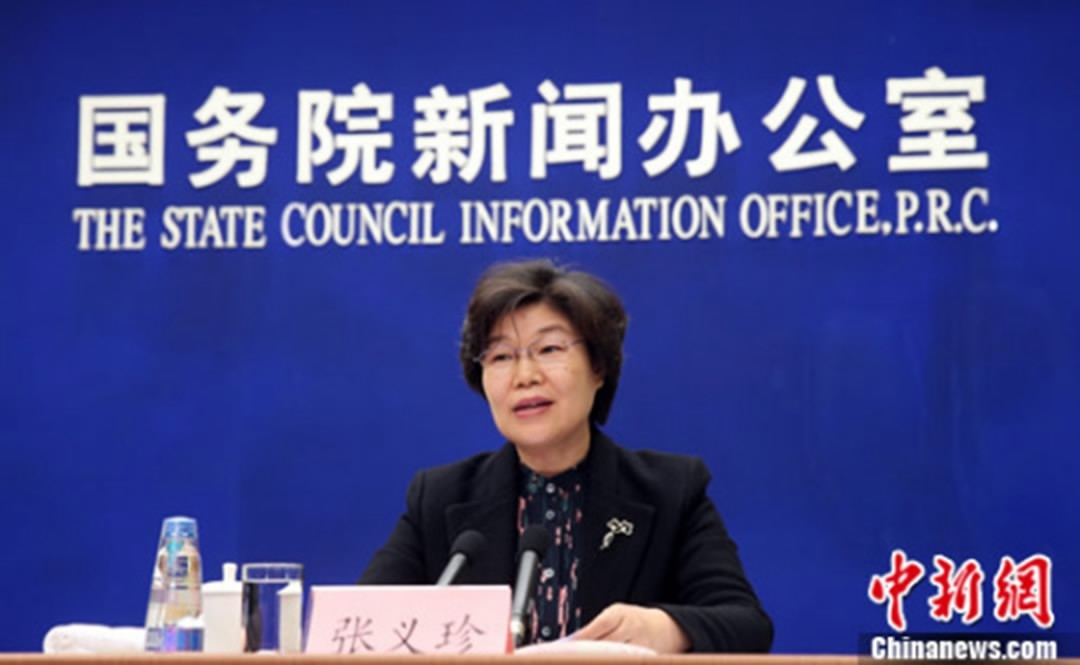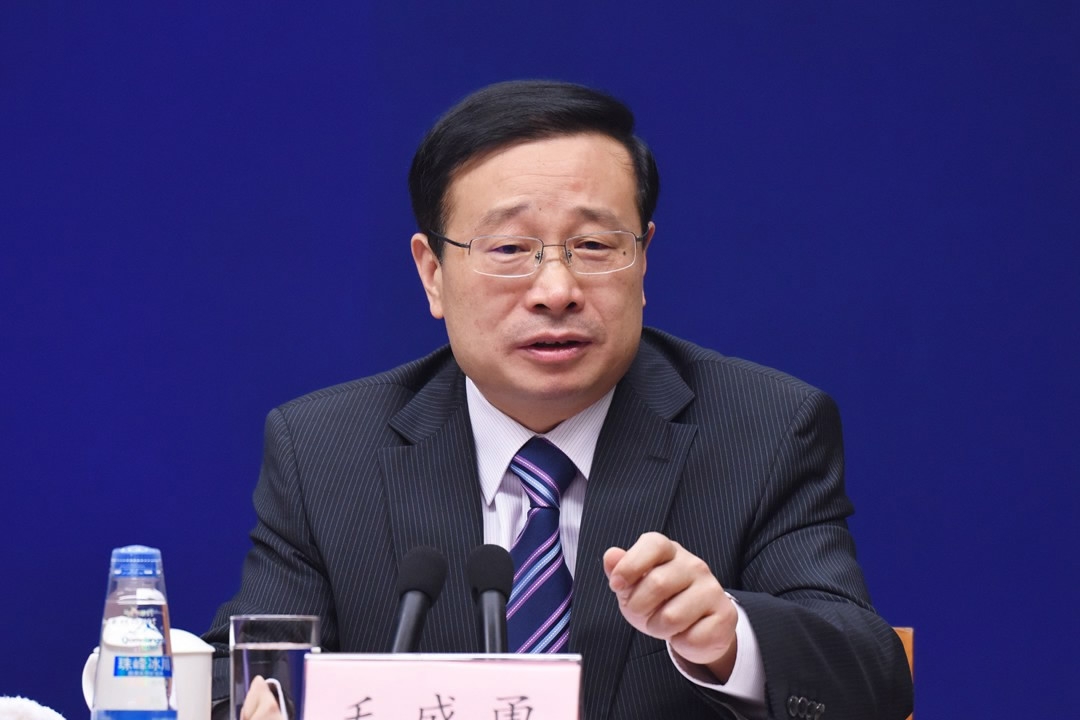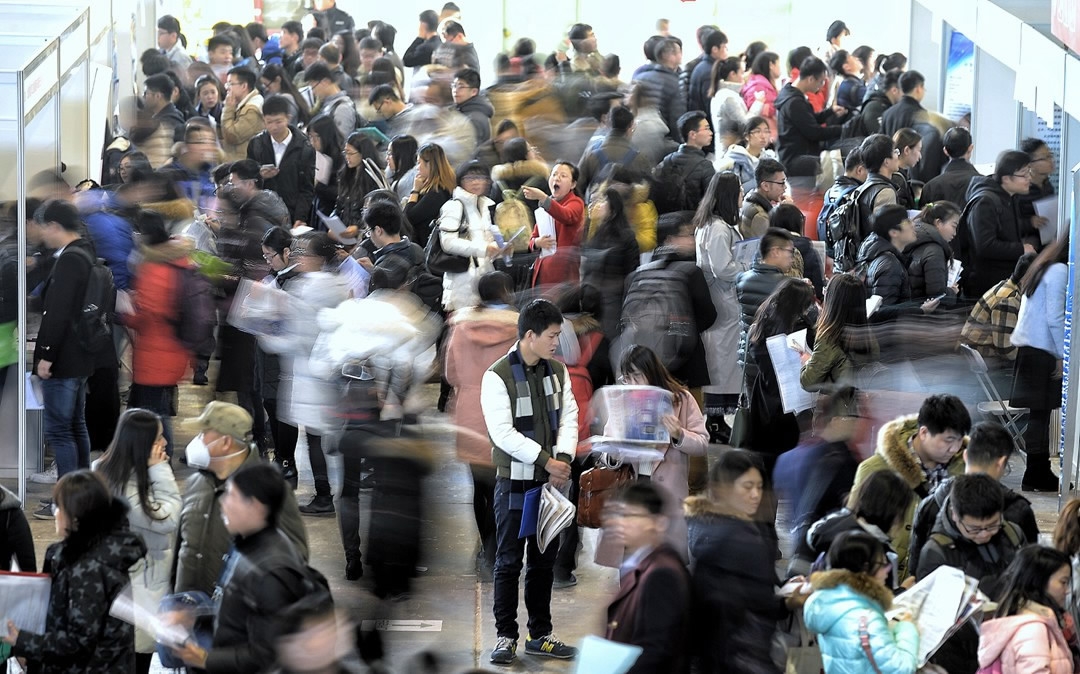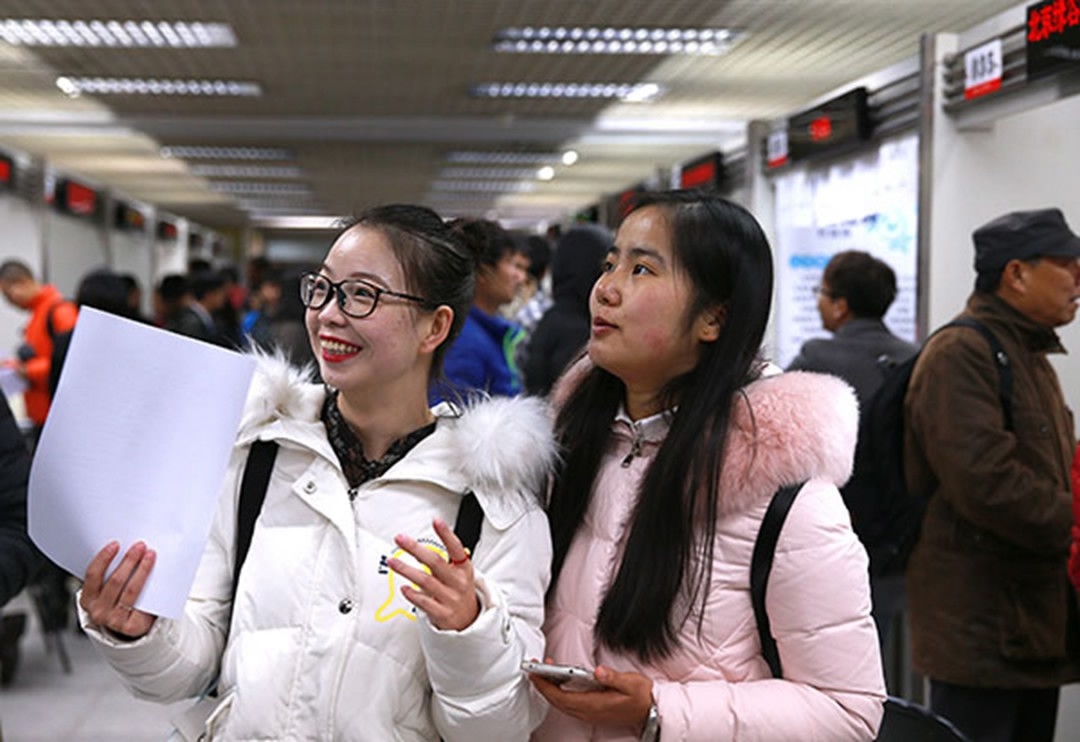The drive to adjust China’s industrial structure and encourage mass entrepreneurship and innovation seem to be boosting employment.

Zhang Yizhen, deputy minister with the Ministry of Human Resources and Social Security /Chinanews.com Photo
The country created 3.34 million new jobs in the first quarter of 2017, 160,000 more than in the same period of 2016, with the unemployment rate in 31 major cities under 5 percent, said Mao Shengyong, spokesperson for the National Bureau of Statistics (NBS), on Monday.

Mao Shengyong, spokesperson for the National Bureau of Statistics /VCG Photo
Recent years have seen more than 13 million new jobs created annually and the unemployment rate at the relatively low level of around 5.1 percent, according to the NBS. Mao cited stable economic growth as a major reason for the strong employment situation.
Industrial structure transition
China’s transition from manufacturing towards services has contributed a lot to employment growth, according to the Ministry of Human Resources and Social Security (MOHRSS). The ministry’s calculation has shown the contribution rate of services to employment is 20 percent higher than that of manufacturing.
The country’s industrial structure transition has obviously increased employment elasticity. An average of 1.7 million jobs would have been created when GDP grew by a percentage point between 2011 and 2015. The number stood at over 1.9 million in 2016.
Last year, the share of services industry in China’s GDP accounted for 51.6 percent, 11.8 percentage points higher than that of the manufacturing industry. The country’s services industry has become a ballast stone for stable economic development.

Graduates attend an employment fair in Beijing on December 9, 2016. /VCG Photo
Mass entrepreneurship and innovation
The boom in startups has also contributed to the country’s employment, said Zeng Xiangquan, director of the China Institute for Employment Research.
The new concept of mass entrepreneurship and innovation was proposed by Chinese Premier Li Keqiang at the 2014 Summer Davos in Tianjin. In the past three years, the average daily number of new registered market entities has reached 40,000, creating over 10 million new jobs per year.
Yin Weimin, minister for the MOHRSS, said the average number of new registered enterprises was 15,000 per day in 2016, with a year-on-year increase of 3,000 enterprises, which contributed 40 percent of new jobs created last year.

Two undergraduates look at job information at an employment fair in Beijing on February 20, 2017. /China Daily Photo
This year sees more than 15 million new workers, including 7.95 million university graduates and around five million vocational school graduates, plus hundreds of thousands of workers in overcapacity sectors who needed re-employment, as well as over three million surplus rural labors.
On April 5, Premier Li called for more cooperation in fiscal, taxation, finance, industry, investment and other policies to ensure the total number of employment positions.









